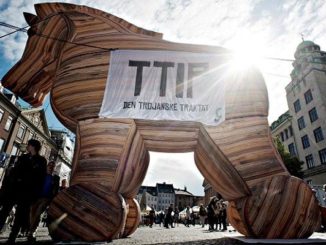The Trans-Atlantic Trade and Investment Partnership (TTIP) has been proposed to create a free trade agreement between the two largest and most powerful global markets in order to enhance further growth perspectives and to react to growing strength of emerging economies. There are now growing concerns however that the initiative could present new threats to sustainable farming and food systems in the EU and US.

US and EU trade negotiators see the process also as a stimulus for new multilateral trade agreements which are stuck in WTO. Particularly thorny issues are agriculture and food safety. EU legislation on food safety is – as compared to the US – much more stringent on food additives (like ractopamine or antibiotics). The the US trade barriers on GMOs, pesticides and certain industrial farming systems are unjustifiable by “sound science.” There has been permanent attack on the EU’s precautionary principle and on animal welfare and “green box” compatible agro- environmental measures. Nanotechnology coatings of fruits and vegetables and synthetically engineered food flavorings are still not accepted as they are in the US.
More locally based food systems with closer links between farmers and consumers as an alternative model against corporate controlled food chains could be wiped out by these lower standards, which would likely be included in other bilateral and regional trade deals and eventually extended to global standards at the WTO.
Negotiations will likely begin in June, but several steps are already underway. A High Level Working Group made recommendations on the outlines of the agreement in February. The EU Parliament is debating the negotiating mandate for TTIP in May in Strasbourg and is preparing a resolution ( see attached). The Obama Administration has formally notified Congress of its intent to begin the trade talks. Leading Members of Congress have called for fast-track negotiating authority by June.




